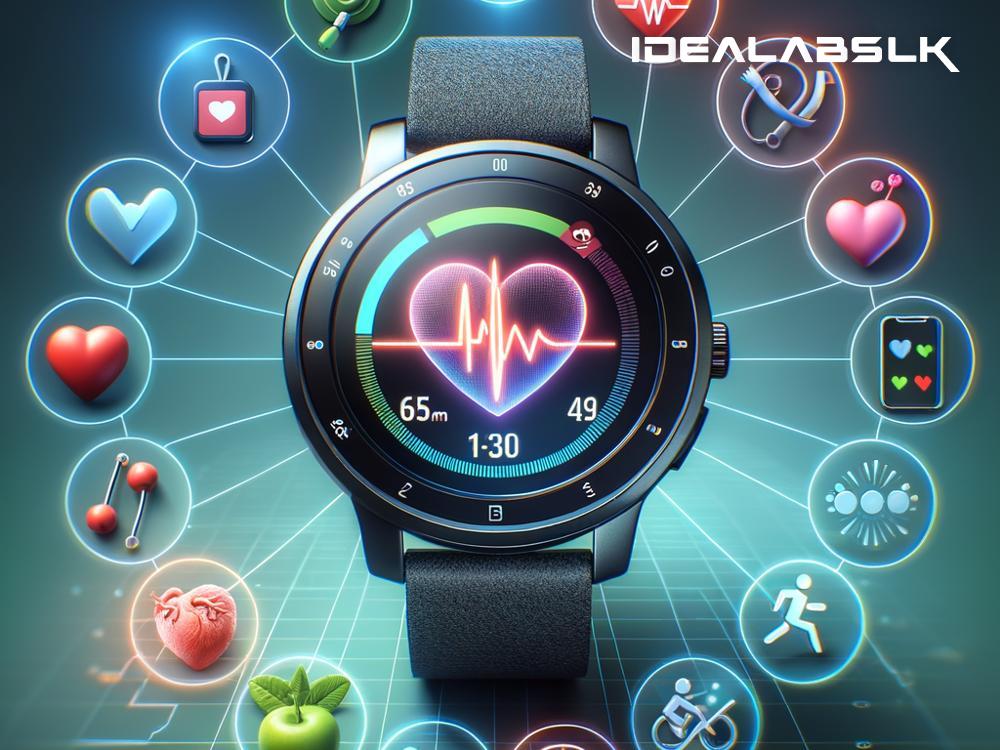How AI Powers Personal Health Monitoring in Advanced Gadgets
In an era dominated by groundbreaking advancements, the integration of Artificial Intelligence (AI) into our daily lives is undeniably revolutionizing various sectors – notably, personal health monitoring. Today, AI-driven gadgets are not mere accessories but vital tools that keep us informed about our health status, predict potential health issues, and even suggest preventive measures in real-time. Let's uncover how AI is empowering these advanced gadgets to enhance our well-being in simple English.
The Heart of the Matter: What is AI?
Imagine having a super-smart friend who helps you make sense of complex health data, predicts what could go wrong based on patterns, and offers advice to keep you fit. That's AI in a nutshell. Except, this 'friend' lives in your gadgets - smartwatches, fitness bands, smartphones, and even in some advanced medical devices. AI algorithms learn from loads of data they collect about your body and activities, making intelligent guesses about your health, much like a well-trained doctor might, but at the speed of light.
Unlocking the Potential: AI in Personal Health Gadgets
-
Heart Rate Monitoring: Modern gadgets don't just count your heartbeats; they analyze the data to detect irregularities like arrhythmia or signs of stress. AI uses your heartbeat data over time to predict potential heart issues before they become serious threats.
-
Sleep Tracking: Ever wonder how your smartwatch knows you’re in dreamland? AI works behind the scenes, monitoring movements and heart rate changes to discern sleep patterns. It helps identify issues like insomnia and sleep apnea, giving insights into improving sleep quality.
-
Fitness and Activity Tracking: Whether you're running, swimming, or dancing, AI-powered gadgets track your activity levels, calculate calories burned, and even provide personalized workout recommendations. They learn from your routines and push you towards healthier habits.
-
Stress Management: By analyzing data from your activities, heart rate, and even your sleep, AI can detect stress levels. Some gadgets offer guided breathing exercises and other recommendations to help manage stress, directly based on the AI’s analysis.
-
Nutrition and Diet: Imagine snapping a picture of your meal, and your phone tells you its nutritional content. AI makes this possible by identifying foods and their portions, aiding in maintaining a balanced diet tailored to your health goals.
A Doctor on Your Wrist? The Future of AI in Health Gadgets
The evolution of AI in health gadgets is blurring the lines between personal devices and medical equipment. With advancements in AI, the future holds potential for:
-
Predictive Health Analytics: Gadgets may soon predict diseases by analyzing patterns that even seasoned medical professionals might overlook. This could transform early disease detection and prevention strategies.
-
Mental Health Monitoring: By analyzing speech patterns, social media usage, and daily activities, AI could offer insights into mental health, potentially identifying conditions like depression or anxiety early on.
-
Remote Patient Monitoring: For chronic conditions, AI gadgets could monitor vital signs and report them to healthcare providers in real time, making ongoing management more efficient and personalized.
Embracing the AI Health Revolution Responsibly
While the prospects are exciting, embracing AI in health monitoring comes with its set of responsibilities – data security, privacy, and the accuracy of health predictions being paramount. Ensuring that these gadgets are reliable and that the data they collect is protected is crucial in harnessing the full potential of AI in personal health monitoring.
In Conclusion
AI's role in powering personal health monitoring gadgets is indeed transformative, offering us a glimpse into a future where our health is continuously monitored, analyzed, and managed with the help of intelligent digital companions. These advancements not only promise to enhance our quality of life but potentially extend it by preventing or managing health issues more effectively.
As we move forward, it's essential to approach this AI health revolution with optimism, balanced by a mindful consideration of its implications and challenges. By doing so, we open ourselves to a world where technology and health are intertwined, leading to a healthier, more informed society.

